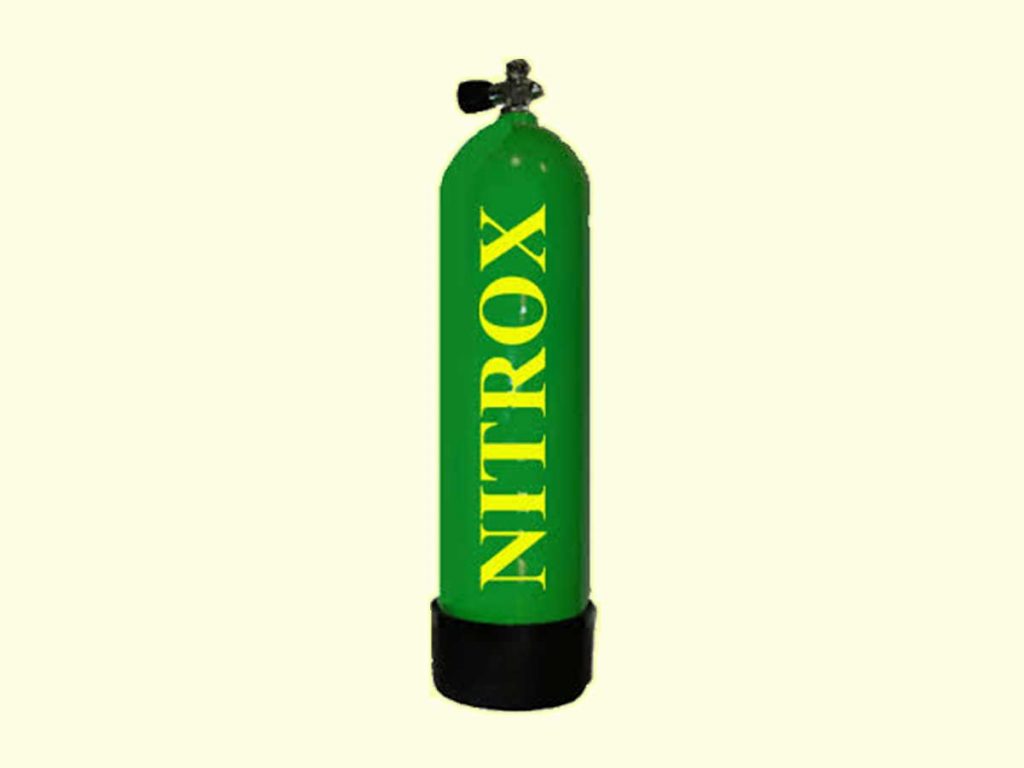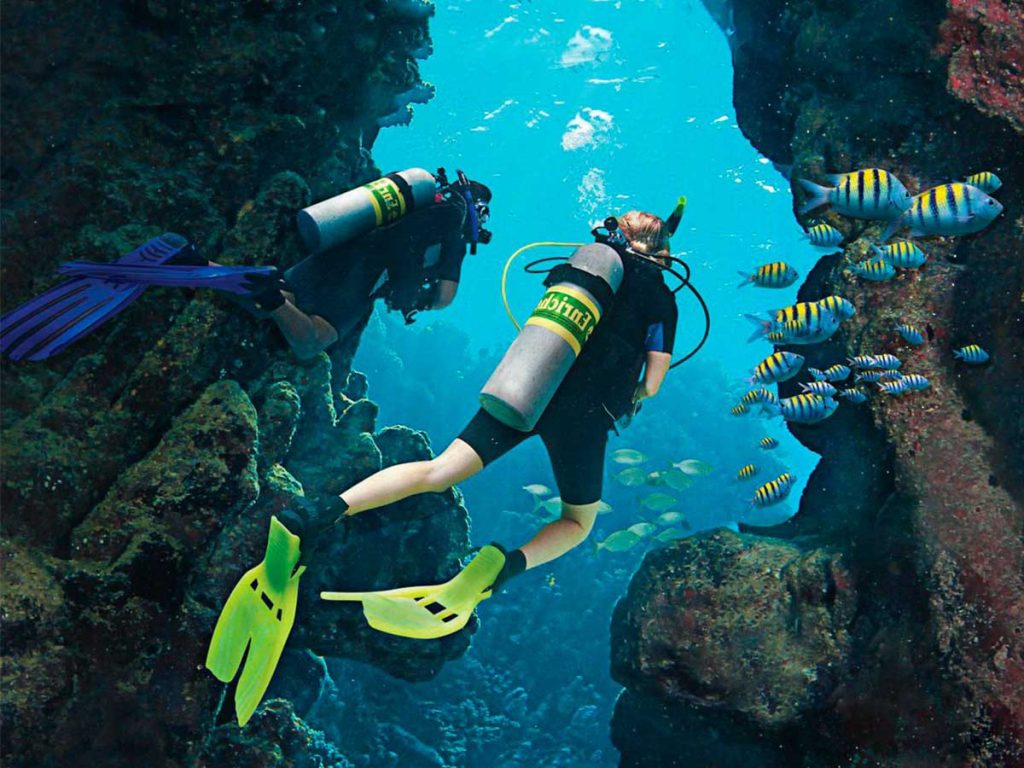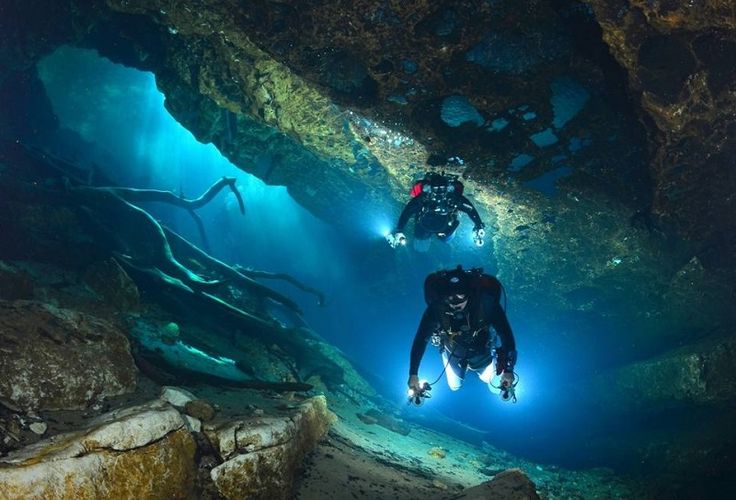Choosing the right specialty diving course and knowing when to begin it can make a significant difference in your underwater journey. For divers exploring the Red Sea, diving courses in Hurghada offer world-class training opportunities. Whether you’re a newly certified open water diver or someone looking to refine advanced skills, Hurghada diving centers provide structured, PADI-recognized programs. The ideal starting point is usually the PADI Advanced Open Water Diver course, which introduces five different specialty dives. This course acts as a gateway to more focused training. After completing it, divers often pursue specialties like Deep Diving, Nitrox, or Wreck Diving—depending on personal interests and diving goals.

Hurghada, located on Egypt’s Red Sea coast, is renowned for its vibrant coral reefs, clear waters, and diverse marine life. It is one of the most accessible and affordable destinations for diving in Hurghada, attracting thousands of divers annually. With over 40 dive centers operating year-round, diving Hurghada has become synonymous with high-quality, safe, and educational diving experiences. The city’s infrastructure supports everything from beginner courses to technical diving certifications.
This article will guide you through the best Hurghada specialty diving courses, explain when to take them, and help you decide which path aligns with your diving ambitions. We’ll explore prerequisites, benefits, safety considerations, and real-world applications of each course. You’ll also find practical tips, seasonal advice, and insights from certified instructors operating in the region.

Hurghada Specialty Diving Course Guide
- Why Specialty Diving Courses Matter
- The Right Time to Begin Specialty Courses
- Top Specialty Diving Courses to Start With in Hurghada
- Choosing the Right Specialty: A Step-by-Step Guide
- When NOT to Start a Specialty Course
- Hurghada: The Ideal Destination for Specialty Training
- How to Choose a Dive Center in Hurghada
- Sample Training Schedule in Hurghada
- Common Misconceptions About Specialty Courses
- Frequently Asked Questions (FAQ)
- Final Recommendations
Why Specialty Diving Courses Matter
Specialty diving courses are designed to expand a diver’s knowledge and skills beyond the basics. They focus on specific environments, equipment, or techniques. These courses are not just about earning certifications. They build confidence, improve safety, and open access to new dive sites.
For example, a diver who completes a Deep Diver specialty gains the training needed to explore wrecks or walls beyond 18 meters. A Nitrox diver learns how to use enriched air to extend bottom time and reduce fatigue. Each course addresses a real need in the diving world.
In Hurghada, where dive sites range from shallow coral gardens to deep drop-offs and historic shipwrecks, specialty training becomes essential. Without proper preparation, divers may miss out on iconic locations like the SS Thistlegorm or El Mina wreck. These sites require advanced planning and skills.
Moreover, specialty courses are often prerequisites for higher-level certifications. The Rescue Diver and Divemaster programs require completion of certain specialties. So, starting early gives you a head start in your diving career.
The Right Time to Begin Specialty Courses
The timing of your first specialty course depends on several factors: your experience level, comfort in the water, and long-term diving goals.
After Open Water Certification: What’s Next?
Once you’ve earned your Open Water Diver certification, you’re qualified to dive to 18 meters with a buddy. However, many new divers feel uncertain in currents, low visibility, or deeper waters. That’s where the Advanced Open Water Diver (AOW) course comes in.
This course is not about being “advanced” in skill. It’s an experience-building program. It includes five adventure dives, two of which are mandatory: Deep Dive and Navigation Dive. The other three can be chosen from a list of specialties such as Night Diving, Drift Diving, or Peak Performance Buoyancy.
Most divers in Hurghada complete the AOW course within 6 to 12 months after certification. Some do it sooner—after just a few fun dives. The key is feeling comfortable with buoyancy, mask clearing, and basic scuba procedures.
Pro Tip: If you’ve only done a few dives after certification, consider doing a Scuba Review or ReActivate program before starting specialty courses. This refreshes your skills and boosts confidence.
When to Move Beyond AOW
After AOW, you’re ready for standalone specialty courses. The best time to begin depends on your diving frequency:
- Occasional divers (1–5 dives per year): Focus on core skills like Peak Performance Buoyancy and Enriched Air (Nitrox). These enhance safety and enjoyment even with limited diving.
- Frequent divers (6+ dives per year): You can pursue more technical specialties like Wreck Diving, Deep Diving, or Night Diving.
- Divers planning to become professionals: Start accumulating specialties early. The Divemaster certification requires five PADI specialties (excluding CPR/First Aid).
In Hurghada, where diving is possible year-round, frequent divers have the advantage. Many locals and expats complete multiple specialties within a single season.
Top Specialty Diving Courses to Start With in Hurghada
Not all specialty courses are created equal. Some provide immediate benefits, while others are niche or require additional equipment. Below is a breakdown of the most valuable first specialties for divers in Hurghada.
1. Enriched Air Diver (Nitrox)
This is often the first specialty divers pursue—and for good reason.

Why take it in Hurghada?
Many popular dive sites in the Red Sea, like Ras Mohammed and The Brothers, involve multiple dives per day. Using Nitrox helps reduce fatigue and decompression stress.
What is Nitrox?
It’s a breathing gas mixture with more oxygen (typically 32% or 36%) than regular air (21% oxygen). This reduces nitrogen absorption, allowing longer bottom times and shorter surface intervals.

- Prerequisites: Open Water Diver
- Duration: 1 day (theory + 2 dives)
- Equipment needed: Nitrox-compatible cylinder (provided by most centers)
Note: Nitrox does not allow deeper diving. The maximum depth depends on oxygen percentage and is strictly calculated.
Many dive operators in Hurghada offer Nitrox as a standard option. Being certified means you can use it without extra training fees.
2. Peak Performance Buoyancy
Buoyancy control is the hallmark of a skilled diver. Poor buoyancy damages coral and increases air consumption.

This specialty focuses on mastering trim, hovering, and fine-tuning your weight system.
Why it’s essential in Hurghada:
The Red Sea’s fragile coral ecosystems are easily damaged by accidental contact. Good buoyancy protects the environment and improves dive photos.
- Prerequisites: Open Water Diver
- Duration: 1 day (2 dives)
Divers who complete this course report better air efficiency and more enjoyable dives. It’s especially helpful for underwater photographers.
3. Deep Diver
This course trains divers to safely explore depths between 18 and 40 meters.

Why consider it in Hurghada?
Iconic wrecks like the SS Thistlegorm (30m max depth) and El Mina (28m) are within this range. Without Deep Diver certification, many operators won’t allow you to visit them.
- Prerequisites: Advanced Open Water Diver (or equivalent)
- Duration: 2 days (4 dives)
Deep diving introduces decompression awareness, gas management, and emergency procedures. It’s a prerequisite for technical diving paths.
4. Wreck Diver
Hurghada is a gateway to some of the world’s most famous wrecks. The Thistlegorm alone attracts thousands of divers yearly.

The Wreck Diver course teaches safe penetration techniques, line use, and navigation inside wrecks.
- Prerequisites: Advanced Open Water + Deep Diver (recommended)
- Duration: 2–3 days
While non-penetration wreck diving is allowed with Deep Diver certification, full exploration requires this specialty. It’s highly recommended for history enthusiasts.
5. Night Diver

Night diving transforms familiar sites into mysterious, alien worlds. Fish behavior changes, and nocturnal creatures emerge.
In Hurghada, night dives are offered at house reefs and nearby reefs like Abu Ramada.
- Prerequisites: Open Water Diver
- Duration: 1 night (2 dives)
This course covers light handling, communication in darkness, and safety procedures. It’s thrilling and builds confidence in low-visibility conditions.
Choosing the Right Specialty: A Step-by-Step Guide
With so many options, selecting your first specialty can be overwhelming. Follow this decision-making framework:
Step 1: Assess Your Diving Goals
Ask yourself:
- Do I want to dive deeper wrecks?
- Am I interested in underwater photography?
- Do I plan to dive frequently in the Red Sea?
- Am I considering a career in diving?
Your answers will guide your choice.
| Extend dive time | Enriched Air (Nitrox) |
| Improve diving skills | Peak Performance Buoyancy |
| Explore wrecks | Deep Diver → Wreck Diver |
| Dive at night | Night Diver |
| Become a professional | Rescue Diver → Divemaster |
Step 2: Evaluate Your Experience Level
- New divers (0–10 dives): Start with Nitrox or Buoyancy. These are low-risk and highly beneficial.
- Intermediate divers (10–30 dives): Consider Deep Diver or Night Diver.
- Experienced divers (30+ dives): Wreck, Drift, or Navigation specialties are ideal.
Step 3: Check Local Dive Conditions
Hurghada’s diving conditions vary by season:
- Summer (May–September): Calm seas, warm water (28–30°C), excellent visibility.
- Winter (November–February): Slightly cooler (22–25°C), occasional currents.
Drift diving is common in winter. If you plan to dive during this season, the Drift Diver specialty is valuable.
Step 4: Consider Equipment Needs
Some specialties require extra gear:
- Night Diving: Primary and backup dive lights
- Wreck Diving: Reel, line, slate, dive light
- Deep Diving: Dive computer with deep algorithms
Most Hurghada dive centers rent equipment. However, owning your gear improves comfort and safety.
When NOT to Start a Specialty Course
While enthusiasm is great, rushing into advanced training can be risky.
Avoid starting a specialty if:
- You’re uncomfortable with basic scuba skills (e.g., mask clearing, regulator recovery).
- You’ve had a long break from diving (more than 6–12 months).
- You feel anxious underwater or in low visibility.
- You’re diving infrequently (less than once a year).
In such cases, focus on fun dives and skill refreshers first. A Scuba Tune-Up or Adventure Dive session can rebuild confidence.
Additionally, some specialties have strict prerequisites. For example:
- Cavern Diver: Requires Open Water + Deep Diver + Night Diver
- Rescue Diver: Requires Emergency First Response (EFR) certification
Attempting these without proper preparation increases risk.
Hurghada: The Ideal Destination for Specialty Training
Hurghada has evolved from a quiet fishing village into one of the world’s top diving hubs. Its location on the western Red Sea coast provides access to over 40 dive sites within a 30-minute boat ride.
Why Choose Hurghada for Specialty Diving?
- Year-Round Diving
Unlike seasonal destinations, Hurghada offers diving every day of the year. Water temperatures rarely drop below 22°C. - Diverse Marine Life
The Red Sea is home to over 1,200 species of fish, 200 types of coral, and frequent sightings of reef sharks, turtles, and dolphins. - World-Famous Wrecks
The SS Thistlegorm, El Mina, and Ulysses are must-see sites. These require specialty training for full exploration. - Affordable Training
Compared to the Caribbean or Southeast Asia, diving courses in Hurghada are significantly cheaper. A full PADI Advanced Open Water course costs around $450–$600, including equipment and boat dives. - English-Speaking Instructors
Most dive centers employ multilingual staff. PADI, SSI, and RAID certifications are widely offered. - Eco-Friendly Practices
Many centers in Hurghada follow sustainable diving guidelines. They promote reef-safe sunscreen, no-touch policies, and marine conservation.
How to Choose a Dive Center in Hurghada
Not all dive centers are equal. Certification quality, safety standards, and instructor experience vary.
Use this checklist when selecting a provider for Hurghada specialty diving courses:
✅ PADI/SSI Affiliation
Ensure the center is officially registered with a recognized agency.
✅ Small Group Sizes
Look for a maximum of 4–6 students per instructor. This ensures personalized attention.
✅ Modern Equipment
Check if regulators, BCDs, and tanks are well-maintained. Older gear increases risk.
✅ Boat Safety Features
Boats should have oxygen kits, first aid supplies, and surface marker buoys (SMBs).
✅ Positive Reviews
Search Google, TripAdvisor, and Facebook for recent feedback. Look for comments on instructor patience and course structure.
✅ Transparent Pricing
Avoid centers that advertise “cheap courses” but charge extra for materials, dives, or certification fees.
here diving around dive center in Hurghada :
We offer structured programs, experienced instructors, and eco-conscious operations.
Sample Training Schedule in Hurghada
Here’s a realistic 7-day plan for a diver starting specialty courses:
| 1 | Arrival + Scuba Review | Refresh basic skills |
| 2 | Enriched Air Diver (theory + dive) | Learn gas analysis and limits |
| 3 | Enriched Air second dive + Nitrox dive | Practice with real Nitrox tank |
| 4 | Deep Diver – Dive 1 (30m) | Guided deep dive with instructor |
| 5 | Deep Diver – Dive 2 (32m) | Practice emergency procedures |
| 6 | Night Diver – First night dive | Use primary and backup lights |
| 7 | Night Diver – Second dive + certification | Complete logbook and receive card |
This schedule allows you to earn three specialties in one week. It’s ideal for vacationing divers.
Common Misconceptions About Specialty Courses
Many divers hesitate due to myths. Let’s debunk them:
❌ “Specialty courses are only for experts.”
False. Most specialties are designed for recreational divers. Nitrox and Buoyancy courses are beginner-friendly.
❌ “I don’t need Nitrox unless I’m diving deep.”
Wrong. Even at 18 meters, Nitrox extends bottom time by 10–20%. It also reduces post-dive fatigue.
❌ “Wreck diving is too dangerous.”
With proper training, it’s safe. The Wreck Diver course emphasizes non-penetration first, then gradual progression.
❌ “I can learn everything on YouTube.”
No. Practical skills like buoyancy control, gas switching, and emergency drills require hands-on training.
❌ “All dive centers in Hurghada are the same.”
Not true. Some cut corners to save costs. Always verify certifications and safety records.
The Role of Dive Computers in Specialty Training
Modern dive computers are essential for specialty diving. They track depth, time, ascent rate, and decompression limits.
In Hurghada, most centers provide rental computers. However, owning one is beneficial.
Features to Look For:
- Nitrox compatibility – Allows switching between air and enriched air.
- Deep depth rating – Must support at least 40 meters.
- Backlight – Crucial for night and deep dives.
- Air integration – Shows remaining tank pressure (optional but useful).
Popular models include:
- Suunto D5/D6
- Garmin Descent Mk2
- Shearwater Perdix
- Oceanic VT4
During specialty courses, instructors will teach you how to use your computer effectively.
Seasonal Considerations for Diving in Hurghada
Timing affects dive conditions and course availability.
Best Time for Specialty Courses: March–May and September–November
- Water temperature: 24–28°C
- Visibility: 20–30 meters
- Calm seas, minimal currents
- Ideal for Night, Deep, and Wreck dives
Summer (June–August)
- Hot air (up to 40°C), warm water (28–30°C)
- Crowded dive boats
- Great for Nitrox and Buoyancy training
Winter (December–February)
- Cooler water (22–24°C)
- Occasional winds and currents
- Best for Drift Diving specialty
- Fewer tourists, lower prices
Plan your trip based on your preferred specialty. For example, take the Drift Diver course in winter when currents are stronger.
Specialty Courses as a Path to Professional Diving
If you’re considering a career in diving, specialty courses are your foundation.
The PADI Divemaster program requires:
- Rescue Diver certification
- CPR/First Aid
- Five PADI Specialty certifications (excluding CPR)
Common specialties for aspiring professionals:
- Deep Diver
- Wreck Diver
- Night Diver
- Navigation
- Enriched Air
Many dive interns in Hurghada complete these during their training. The city offers affordable liveaboard trips and internship programs.
Did You Know? Some dive centers offer internship packages that include multiple specialties, boat dives, and job placement assistance.
Environmental Responsibility in Hurghada Diving
With great diving comes great responsibility. The Red Sea’s ecosystem is fragile.
Specialty training in Hurghada increasingly includes eco-modules:
- Project AWARE – Teaches marine debris removal and coral protection.
- Coral Reef Conservation – Explains bleaching, overfishing, and climate impact.
Many centers now require:
- Reef-safe sunscreen (no oxybenzone)
- No gloves (to discourage touching)
- Mandatory buoyancy checks before reef dives
By taking specialty courses, you’re not just improving skills—you’re learning to protect the underwater world.
Real Diver Experiences: Why They Chose Hurghada
Here are insights from actual divers who completed specialty courses in Hurghada:
Sarah, UK
“I did my Nitrox and Deep Diver courses in Hurghada. The instructor was patient, and the boat trips to Thistlegorm were unforgettable. I felt safe the whole time.”
Mark, Germany
“I’d only done 5 dives before arriving. I started with Peak Performance Buoyancy. It changed everything. Now I hover effortlessly over coral.”
Lina, Sweden
“Night diving in Hurghada was magical. We saw octopuses, lionfish, and glowing plankton. The course was well-organized and fun.”
These testimonials highlight the quality and accessibility of diving Hurghada.
Frequently Asked Questions (FAQ)
Yes, for some. Nitrox, Night Diver, and Buoyancy can be taken right after certification. Deep and Wreck diving require Advanced Open Water.
Most take 1–3 days. Nitrox and Night Diver are often completed in 24 hours.
Yes. PADI and SSI certifications are valid globally.
Yes. Many divers complete 2–3 in a week. Centers offer combo packages for savings.
Very. Strict safety protocols, experienced guides, and modern equipment ensure a secure experience.
Final Recommendations
If you’re planning to dive in the Red Sea, investing in Hurghada specialty diving courses is a smart move. Start with Enriched Air (Nitrox) or Peak Performance Buoyancy—both offer immediate benefits with minimal risk.
After gaining more experience, progress to Deep Diver and Wreck Diver to unlock iconic sites. Always choose a reputable center, dive within your limits, and prioritize safety.
Hurghada’s unique combination of affordability, accessibility, and world-class diving makes it one of the best places to advance your skills. Whether you’re a casual diver or aiming for a professional career, the right specialty course at the right time can transform your underwater adventures.
